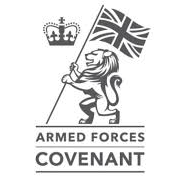This IMCA-recognised course represents the final phase of air diver training and is only available to those who have successfully completed an HSE-approved Surface Supplied diving course. The HSE Surface Supplied (Top-Up) certificate is a mandatory requirement for divers seeking to work on offshore oil, gas, and renewable energy projects.
All diving activities are conducted on board DSB Sleat using the PDA’s spacious wet bell, with hot water suits worn throughout in the bell and your own dry-suit for the “act as a surface stand-by “ training and assessment dives. The wet bell provides a secure and practical method of transporting divers to and from the underwater worksite. The course also delivers in-depth knowledge of the procedures required to safely conduct diving operations from a dynamically positioned vessel (DPV).
The course places strong emphasis on emergency procedures, including diver recovery drills, response to air supply loss or contamination, communication failures, and complete system shutdown scenarios. Delegates also gain practical experience operating the air and hot water delivery panels within the dive control station and learn to manage the launch and recovery system (LARS)winches.
What to expect:
On the first day you will be asked to be at PDA for 8:00AM for registration, there after the start time for the remainder of the course shifts to 8:30AM. Each morning starts at Unit 19 before we load up any required dive kit and head to the Holy Loch.
Day 1 on the DSB Sleat involves safety inductions followed by a tutorial in the classroom covering the wet bell dive system, hot water system and hot water suits and a brief for a familiarisation dive.
Days 2-5:Classroom in the morning on DSB the Sleat followed by training and assessment focusing on various elements, including pre/post dive checks for a wet bell diving operation, and ensuring that correct emergency actions and procedures are followed as both a bell man and a surface standby diver at various depths and scenarios.
You will have continuous guidance and feedback from our Instructors.
Upon successful completion of the HSE Surface Suppled (Top-Up) course, candidates will be issued with the following certificate:
- HSE Surface Supplied Top-Up (IMCA Recognised)
Yes, there will definitely be homework! The course is a comprehensive blend of lectures, theory, practical assessments, formal exams and plenty of time underwater.
All lectures, instructions for practical assessments, revision materials, and exams are conducted in English, so it’s essential that you have a strong grasp of both spoken and written English to keep up.
Please don’t underestimate the importance of the exams. In order to successfully complete the course, you must pass the written exam, with a minimum pass mark of 80%. Before the exam, you will sit a practice paper to help you prepare.
Please note: a second unsuccessful attempt may not automatically entitle you to a third. The provision of a third exam is at the discretion of HSE UK. For full details, please refer to our Terms & Conditions.
The format varies: some exams are multiple choice, while others require full written answers. Additionally, upon arrival, you’ll need to pass a short academic exam. If you’d like a preview, visit DCTAS Examinations and navigate to the “Assessment of Academic Ability” section to try the practice materials. This will help you assess your readiness or identify areas that might need extra attention before you join us.
Be prepared—this course is no walk in the park. It will test you both physically and mentally. We highly encourage self-study when you're not onsite with us, remember you will get out what you put in. Your safety and our duty of care to you is paramount and will not be compromised. We will only deem you competent for every practical assessment when we are 100% verifiably assured of your competency to progress. However, don’t worry—you’re not alone. Our Instructors are here to guide you, offering support, encouragement, and training in diverse diving environments to build your confidence. Their goal is to promote a positive learning environment and ensure that you leave with all the tools and skills needed for a successful career in the diving industry. You can trust them to keep you safe and ensure there’s plenty of laughter along the way.
To enrol in this course, you must meet the following requirements:
- Be at least 18 years old
- Have an HSE Professional SCUBA Certificate (or an approved equivalent), and HSE Surface Supplied Certificate which must be checked and verified by PDA team prior to booking on course
- Possess a valid First Aid at Work Certificate and O2 Provider
- Be able to pass an HSE Diving Medical, which you’ll need to bring with you on the first day. For more information, please visit the HSE site.
Professional diving is a demanding career that can place you in challenging situations. Therefore, a high level of physical and mental fitness is essential—not only to complete the course successfully but also for long-term success in the diving industry.
All medicals must be conducted by an HSE-approved doctor.
You will need to complete the Medical Questionnaire (MA1 Form) with your GP prior to attending your HSE Diving Medical appointment.
Please note that certain medical conditions may prevent you from diving or restrict the type of diving you can perform. These conditions include:
- Diseases of the heart or circulation (e.g., high blood pressure, angina, chest pain, or palpitations).
- Collapsed lung (pneumothorax) or other chest/lung problems.
- Ear, nose, throat, or sinus issues.
- Persistent stomach or intestinal problems.
- Mental health conditions.
- Epilepsy or childhood convulsions.
- Claustrophobia or severe motion sickness.
- Severe migraines.
- Diseases of the brain or nervous system (e.g., strokes, multiple sclerosis).
- Blackouts or recurring fainting episodes.
- Head or spinal injuries/surgeries.
- Skin conditions.
- Blood disorders.
- Diabetes.
- Asthma.
Additionally, anyone who is pregnant or suspects they might be should not dive during pregnancy and may need to avoid diving for some time afterward.
International Students must have the Medical Questionnaire (MA1 Form) completed by their own GP. It is highly recommended that international students consult with a local diving doctor to complete the Chester step test and VO2 max test out with eight weeks prior to the course start date.
This form can also be found above in our ‘Download’ area.
Included in the course:
- All PPE (Hard-Hat, Ear Plugs, Safety Glasses, Work Gloves)
- PDA Branded Polo-shirts, T-shirts and Coveralls
- PDA Branded Beanie & Snood
- All Course Manuals and Notebook
- IMCA Divers Logbook
- Reusable Water Bottle
Use of for the duration of the course:
- Wet Weather Gear (Fladen Salopettes and Jacket)
- O’Three Drysuit and Base Layers
- Life Jacket (Seago, Self-Inflating)
The must bring-along to attend the course:
- Safety shoes or boots with reinforced toe protection for practical activities.
- Original HSE Diving Medical (copies will not be accepted)
- Indoor shoes for classroom sessions (flip-flops, trainers, or crocs work well).
- Neoprene diving gloves.
- Four high-quality passport-sized photographs, signed on the back.
- Writing tools, including a marker pen for labelling your issued kit.
- A calculator (mobile phones cannot be used during exams).
- Photo ID (passport, driving licence or national ID card).
Located on the stunning Cowal Peninsula, we’re lucky to have Argyll and Loch Lomond as our neighbours and the Trossachs National Park within easy reach. This makes us a year-round destination for hillwalkers and mountain bikers, with yachting and kayaking enthusiasts joining us in the warmer months. If you have the time, pack your bike, walking shoes, or kayak and explore the wilderness after classes or social activities!
Arriving by plane? The nearest airport is Glasgow Airport. Once you’ve navigated through security, you can choose your preferred transport option to Dunoon:
Driving: If you’re travelling by car, you have two scenic options:
- The Long Route: Drive through the Loch Lomond National Park for breath-taking views and a relaxing road trip.
- The Quick Route: Take a shortcut across the River Clyde by ferry. Two companies operate ferry services to Dunoon, but only Western Ferries accommodates vehicles. Ferries run every 20–30 minutes, so it’s convenient to plan your journey. Please note: tickets purchased online in advance or at one of the ticket agents are cheaper than purchasing on the boat itself.
Buses: Regular buses run from Glasgow and Glasgow Airport to Dunoon. Alternatively, you can hop off the bus at Gourock, then take a CalMac Ferry to Dunoon. The ferry docks just a 5-minute walk from Dunoon’s town centre.
Trains: Take a ride from Glasgow Central Station or Paisley Gilmour Street Station (near the airport) to Gourock.
- If departing from Glasgow Central, buy your ticket in advance to pass through the station barriers.
- If departing from Paisley Gilmour Street, you can buy a ticket either before boarding or onboard the train.
From Gourock, it’s then a short walk to the CalMac Ferry terminal.
Pro Tip: If the weather takes a turn and the CalMac Ferry service is suspended (it happens!), you can take a bus or taxi from Gourock to McInroy’s Point, where the Western Ferries operate.
On arrival with the Western Ferry:
- Western Ferries dock at Hunters Quay, which is about 2 miles from Dunoon’s town centre. You can enjoy a scenic walk or hail a taxi to get to your accommodation from there.
For taxis, you can try:
- Clyde Taxis: 01369 706444
- Thistle Taxis: 01369 704331
If buses are your preference, please check schedules at West Coast Motors.
To ensure you don’t miss out and secure your place on the course we require a 20% deposit. The remainder of your balance will then be due 8 weeks prior to the course starting.
This is dependent on how much notice you give if requesting to move to another course date, plus if there are available places on the course you are wanting to move to. Please refer to our T&C’s for full information.
We hold a selection of additional stock should you wish to purchase more kit while on course – just ask!
Towards the end of the course, we give our graduates as much information and guidance as we can to set them on their way into their new career. This is done by way of assistance with CV writing and provision of a list of inshore and offshore employers who recruit divers.
Students should note that there are implications with diving and flying. You must check with the training staff before booking any flights during the course. As a guide, flights home on completion of course should be made NO EARLIER than 24 hours after the last dive of the course.
Yes, complimentary Wi-Fi is available throughout our onsite premises for all visitors and course participants.












